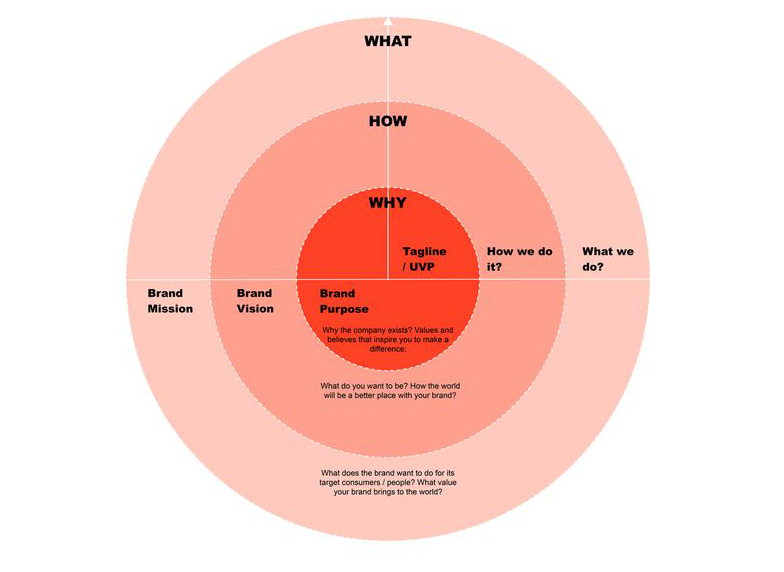You have an excellent brand strategy and it works quite well.
You don't have to miss it, right?
The truth is that your branding strategy may seem to be going well, but it's extremely important to stay in the now. Trends change, and if your branding doesn't keep up, you may start to lose customers.
In a world where competition is fierce and customers have so many choices, you can't afford to rest on your laurels.
So, what exactly does a rebranding entail?
Many people are terrified at the idea of making changes to their corporate image, but in reality rebranding comes with all the best intentions for you and your business identity.
So rebranding is a "reframing" of the way your brand communicates its object, values and aesthetics, and when done correctly, it refreshes your image and helps your business look upgraded and modernized.
A rebranding can do more.
You can attract more customers, increase loyalty, close sales more easily, achieve premium prices and increase brand recognition and value, all while maintaining high standards in the quality of your services and products.
So what are the signs that it's time for a change in your corporate identity?
1) Your business name no longer reflects your brand vision.

One of the most obvious signs of a brand change is a suboptimal brand. It happens. What seemed like a great name 15 years ago may now no longer represent what your brand is all about.
Sometimes changes in cultural context can change the meaning of a name. If Larry Page and Sergey Brin didn't have the foresight to change Google's original name, we'd all have BackRub as our default browser homepage!
Whatever the reason, you should not let the name of your brand weigh down the brand itself. A strong name is the foundation of your brand story and should be unique, differentiating and, above all, memorable.
If you decide to completely change the name of your business, you may find that it's not that simple. Beyond the daunting task of achieving a name that is both unique and meaningful, there are the significant challenges of trademark control and URL research. By following a proper naming process, you can ensure that your new name is fully available.
2. You fail to differentiate yourself from the competition.

Another indication that you need to change your brand is when you see that your brand no longer stands out from the others.
Branding is about competitive differentiation. But you'd be surprised how many companies are unable to communicate their differences from the rest. When you don't have clearly articulated differentiators, sales and business growth can be extremely difficult. It's important that both your employees and your customers understand why your brand is different from the rest.
Your competitive advantage is the element that differentiates you from the rest. And that can be none other than your brand. A strong brand enables you to compete, whether you have a tangible advantage over your competitors or not.
3. You find it difficult to increase your prices.

If the market price for your products or services seems hopelessly stable, despite the rising cost of materials, a rebranding can be an effective way of breaking free.
A stale corporate image cannot easily keep pace with a substantial modernisation, either in the operation of the business or in a possible increase in the prices of its services or products. A rebranding gives you the power to radically upgrade, redefining the value of your benefits with an appropriate increase in your prices. Strong brands are more profitable, generate more equity and sell at higher multiples.
4. Trying to connect with a new audience

Today it's Gen Z. Tomorrow it will be Gen Alpha.
If you're trying to attract the attention of a new profitable audience, it's probably time to rebrand your business. Promoting your company to new customer segments starts with ensuring that your brand connects with their needs.
With brand monitoring, you can track the motivations, preferences, needs and buying habits of new and existing customers and adjust your branding accordingly. The last thing a smart young person wants is to be associated with the hard-to-digest brands of their parents' generation. A rebrand allows you to redefine the essence of your brand to reach this new and untapped audience.
5. Your business model or strategy has changed

Another sign of when to rebrand your business is when your business model or strategy changes.
As we have seen recently, you cannot always predict the external factors that will force changes in your business. But when your business model or strategy changes, your brand must change with it.
When changing your brand to adapt to a fundamental change in your business, you need to start at the foundation: your brand compass.
Any comprehensive rebranding starts with establishing your company's purpose, vision, mission and values.
Why does your company exist? Where is it headed? How will it get there? What values define your company culture?
Clearly articulating these guiding principles is the starting point for any rebranding, especially those inspired by a change in business strategy. Your brand compass provides the foundation for many other elements of your brand and charts a path to its future success.
How will you know when to rebrand?
Often the first sign is simply wondering if a rebranding is necessary.
One thing is for sure, a rebranding is a natural part of the growth of any business. It's not a matter of "if", it's a matter of "when".
You can be sure you are making the right decision by measuring the benefits that will result from the rebranding. That way you'll see that the investment is likely to pay off many times over, for years to come.







